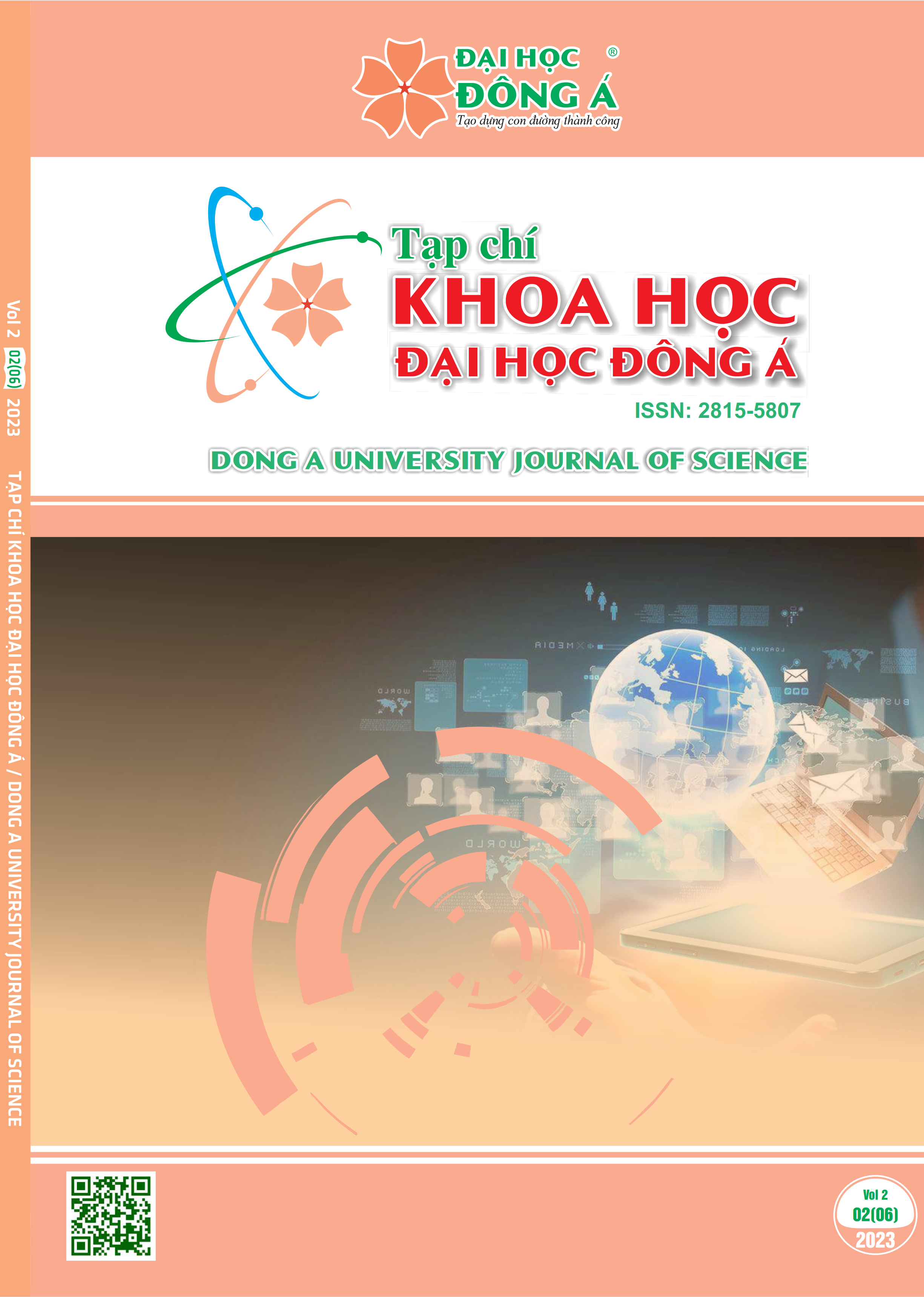Research on Household Travel's Satisfaction with the Quality of Accommodation Services in Danang
Main Article Content
Abstract
The purpose of the article is to assess the difference of demographic variables of household tourists on the satisfaction of service quality, both in terms of technical and functional aspects of muscle. Department of residence (CSLT) at Da Nang destination. A questionnaire is designed in a reasonable structure to survey the opinions of 530 tourists by combining direct interview and online sample filling, including 480 satisfactory samples (90, 56%). Regarding data processing methods, SPSS 25.0 software is used to statistics describing demographic characteristics of research and analysis of Cronbach's Alpha coefficient to determine the reliability of the scale and testing of One - Way Anova to find the difference between the values of each demographic variable by age, qualifications and nationality of tourists. The results are not found to be statistically significant between demographic variables about satisfaction with the quality of service of CSLT. The scientific contribution of the article is reflected in the expansion of knowledge about service quality as well as building a tool to measure the satisfaction of household tourists on the quality of the accommodation of accommodation in Vietnamese practical conditions.
Article Details
Keywords
household tourism, accommodation facilities, service quality, COVID-19, satisfaction
References
Benitez, J. M., Martín, J. C., & Román, C. (2007). Using fuzzy number for measuring quality of service in the hotel industry. Tourism management, 28(2), 544-555.
Bigné, J. E., Andreu, L., Küster, I., & Blesa, A. (2005). Quality market orientation: tourist agencies’ perceived effects. Annals of Tourism Research, 32(4), 1022-1038.
Campo, S., & Jesús Yagüe, M. (2009). Exploring non‐linear effects of determinants on tourists' satisfaction. International Journal of Culture, Tourism and Hospitality Research, 3(2), 127-138.
Chang, J. C. (2009). Taiwanese tourists' perceptions of service quality on outbound guided package tours: A qualitative examination of the SERVQUAL dimensions. Journal of vacation marketing, 15(2), 165-178.
Chính phủ. (2017, 12 31). Quy định một số điều của Luật du lịch. Nghị định (168/2017/NĐ-CP).
Cristobal, E., Flavian, C., & Guinaliu, M. (2007). Perceived e‐service quality (PeSQ): Measurement validation and effects on consumer satisfaction and web site loyalty. Managing service quality: An international journal.
Gopalan, R., & Narayan, B. (2010). Improving customer experience in tourism: A framework for stakeholder collaboration. Socio-Economic Planning Sciences, 44(2), 100-112.
Grönroos, C. (1984). A service quality model and its marketing implications. European Journal of marketing, 18(4), 36-44.
Gunasekaran, N., & Anandkumar, V. (2012). Factors of influence in choosing alternative accommodation: A study with reference to Pondicherry, a coastal heritage town. Procedia-Social and Behavioral Sciences, 62, 1127-1132.
Guttentag, D., Smith, S., Potwarka, L., & Havitz, M. (2018). Why tourists choose Airbnb: A motivation-based segmentation study. Journal of Travel Research, 57(3), 342-359.
Choi, H., Ann, S., Lee, K. W., & Park, D. B. (2018). Measuring service quality of rural accommodations. Sustainability, 10(2), 443.
Kasiri, L. A., Cheng, K. T. G., Sambasivan, M., & Sidin, S. M. (2017). Integration of standardization and customization: Impact on service quality, customer satisfaction, and loyalty. Journal of Retailing and Consumer Services, 35, 91-97.
Nusair, K. K., & Kandampully, J. (2008). The antecedents of customer satisfaction with online travel services: a conceptual model. European Business Review.
Velázquez, B. M., Saura, I. G., & Molina, M. E. R. (2011). Conceptualizing and measuring loyalty: Towards a conceptual model of tourist loyalty antecedents. Journal of vacation marketing, 17(1), 65-81.
Moreno-Gil, S., & Martin-Santana, J. D. (2015). Understanding the image of self-contained and serviced apartments: the case of sun and beach destinations. Journal of Hospitality & Tourism Research, 39(3), 373-400.
Nunnally, J. C. (1978). Psychometric Theory 2nd ed. Mcgraw hill book company.
Nusair, K. K., & Kandampully, J. (2008). The antecedents of customer satisfaction with online travel services: a conceptual model. European Business Review.
Priporas, C. V., Stylos, N., Rahimi, R., & Vedanthachari, L. N. (2017). Unraveling the diverse nature of service quality in a sharing economy: A social exchange theory perspective of Airbnb accommodation. International journal of contemporary hospitality management, 29(9), 2279-2301.
Svari, S., Svensson, G., Slåtten, T., & Edvardsson, B. (2010). A DIP‐construct of perceived justice in negative service encounters and complaint handling in the Norwegian tourism industry. Managing Service Quality: An International Journal, 20(1), 26-45.
Tổng cục Du lịch. (2017). Tiêu chuẩn quốc gia TCVN 7800:2017. Nhà ở có phòng cho khách du lịch thuê (Homestay).
Tussyadiah, I. P. (2016). Factors of satisfaction and intention to use peer-to-peer accommodation. International Journal of Hospitality Management, 55, 70-80.
Zehrer, A. (2009). Service experience and service design: concepts and application in tourism SMEs. Managing Service Quality: An International Journal, 19(3), 332-349.


